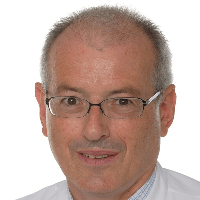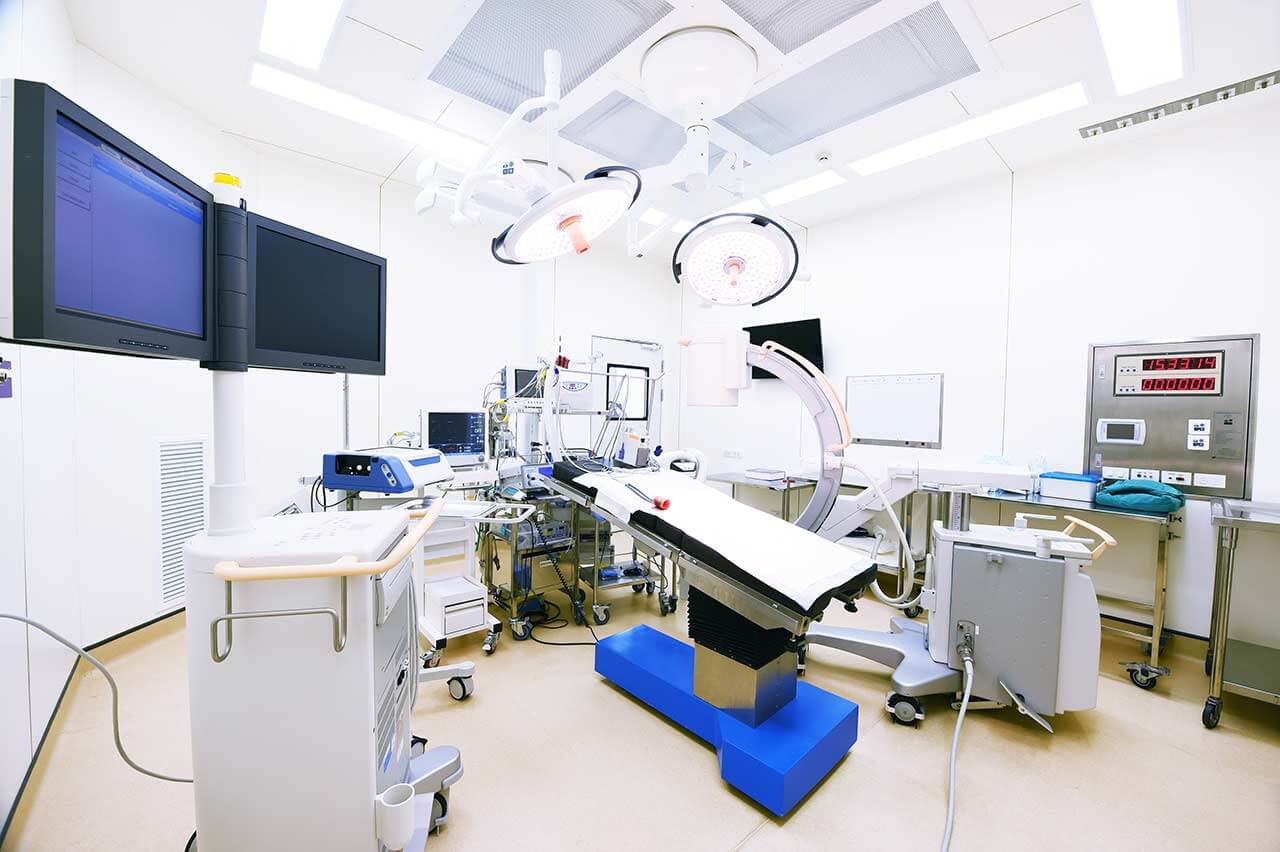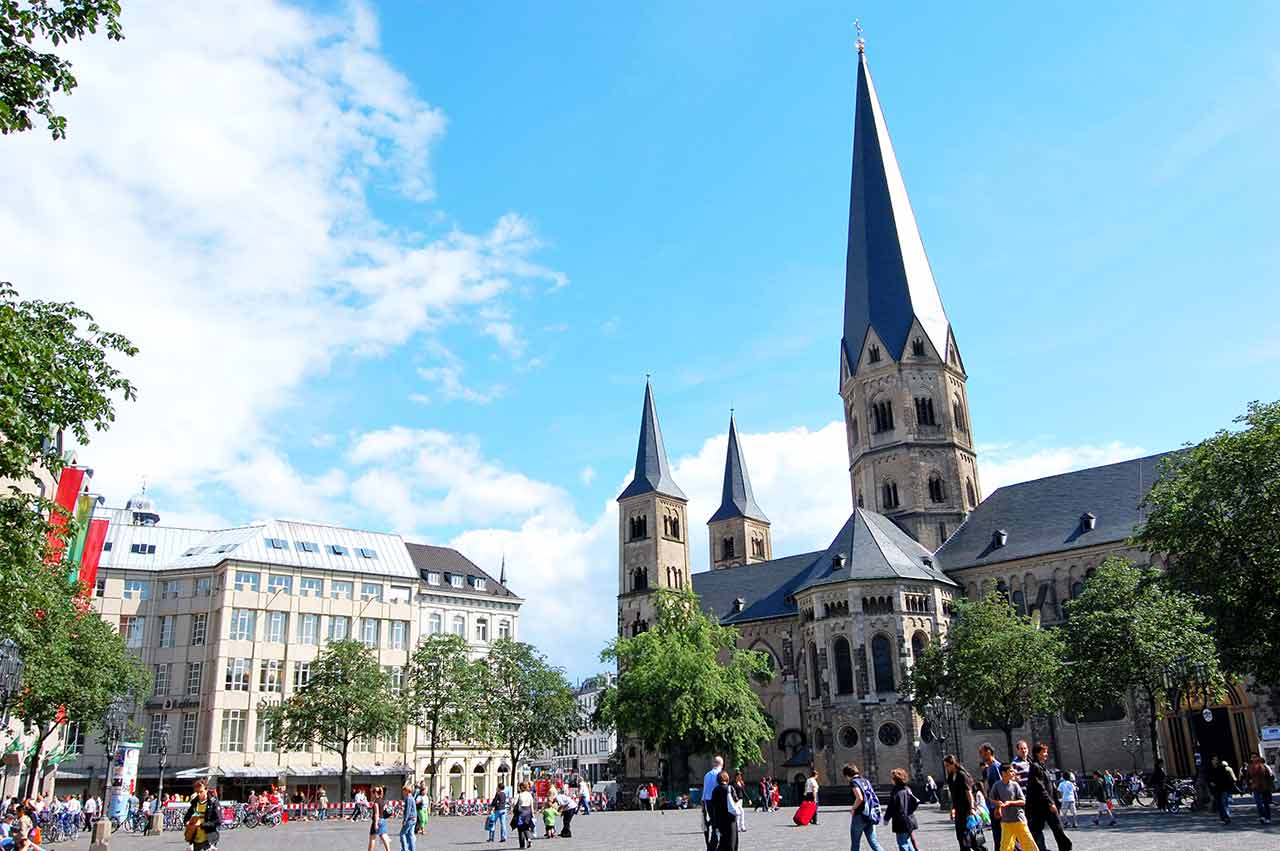
The program includes:
- Initial presentation in the clinic
- clinical history taking
- physical examination
- review of medical records
- laboratory tests:
- complete blood count
- general urine analysis
- biochemical analysis of blood
- indicators of inflammation
- indicators blood coagulation
- x-ray examination
- CT/MRI scan
- preoperative care
- minimally invasive periacetabular osteotomy
- symptomatic treatment
- control examinations
- physiotherapeutic procedures
- orthopedic appliances
- the cost of essential medicines and materials
- nursing services
- full hospital accommodation
- explanation of future recommendations
Required documents
- Medical records
- X-ray examination, MRI/CT scan (if available)
Service
You may also book:
 BookingHealth Price from:
BookingHealth Price from:
About the department
The Department of Pediatric Orthopedics and Neuro-Orthopedics at the University Hospital Bonn offers the full range of services in these fields and specializes in the diagnostics and treatment of diseases of the musculoskeletal system, including those with impaired neurological functions. Such pediatric pathologies represent a difficult task for orthopedists, therefore the department’s clinical practice is based on an individual approach to each young patient and selection of the most optimal treatment strategy for him. The department offers both classical and innovative therapeutic techniques in order to ensure the most effective functional restoration of the musculoskeletal system in children. The Chief Physician of the department is Prof. Dr. med. Richard Placzek.
The treatment process often involves private pediatricians, orthopedists, physiotherapists, and related specialists from other departments of the university hospital, such as neonatologists, pediatric hematologists and oncologists, neuropediatricians, experts in human genetics, etc. Thus, the child receives a comprehensive treatment, taking into account the smallest details and features of the pathology course.
The service range of the department includes the diagnostics and therapy of the following diseases:
- Congenital hip dysplasia, hip dislocation
- Primary treatment, namely the reposition of congenital dislocations, fixation with a plaster cast or splint
- Slipped capital femoral epiphysis
- Osteosynthesis
- Interventions in order to prevent of the pathology progression
- Perthes disease
- Conservative therapy
- Surgical treatment
- Cerebral palsy
- Botulinum toxin injection therapy (treatment in accordance with the recommendations "Botulinum toxin injection therapy" of the specialized Working Group (AkBoNT) of the German Society of Neurology). A single injection of botulinum toxin into spastic muscles allows to reduce the period of spasticity for a long time (as a rule, from 8 to 12 weeks). This provides time for targeted muscle stimulation within the multimodal therapy, namely in combination with physiotherapy, ergotherapy and the use of orthopedic aids. The treatment concept involves repeated injections throughout the entire growth period of the child.
- All types of transposition osteotomy and soft tissue surgery
- Provision with aids (for example, functional orthoses, wheelchairs)
- Duchenne muscular dystrophy/Becker muscular dystrophy/other muscular dystrophies
- Conservative and surgical treatment
- Conservative and surgical treatment of all the effects of neuromuscular diseases of the musculoskeletal system in children and adults
- Limb deformities (axial and leg length disorders)
- Installation of an external fixator to lengthen and correct the axis of the lower limbs
- Temporary and permanent epiphysiodesis
- Clubfoot and other foot deformities (for example, valgus flat foot, hollow foot)
- Conservative treatment by the Ponseti method
- Surgical treatment using the Dimeglio/Krauspe/Crawford technique
- Osteochondritis dissecans
- Conservative therapy
- Surgical treatment (in close collaboration with the team specializing in knee treatment/arthroscopy)
- Idiopathic/neuromuscular scoliosis
- Conservative and surgical treatment (in close cooperation with the Section of Orthopedics and Spine)
- Skeletal dysplasia
- Conservative and surgical treatment
- Benign bone tumors, for example, cartilaginous exostosis, osteoid osteoma (in close collaboration with the Section of Oncological and Rheumatic Orthopedics)
- Purulent arthritis/osteomyelitis
- Conservative and surgical treatment
- Torticollis
- Conservative and surgical treatment
- Other diseases, treatment methods
Curriculum vitae
- Medical Specialist in Orthopedics, Pediatric Orthopedics.
- Admission to carry out the advanced training courses in Pediatric Orthopedics.
- Qualification in Orthopedic Rheumatology.
- Qualification in Sports Medicine.
- Qualification in Chiropractic.
- Theoretical basis of the specialty (Emergency Medical Care).
Certificates
- Certificate in Orthopedic Oncology, German Society of Orthopedics and Orthopedic Surgery (DGOOC).
Photo of the doctor: (c) Universitätsklinikum Bonn
About hospital
According to the authoritative Focus magazine, the University Hospital Bonn ranks among the top ten medical facilities in Germany!
The hospital was opened on January 1, 2001, although in fact it inherits the medical facility, which operated at the Faculty of Medicine of the University of Bonn. The hospital in Germany combines all the highest standards of modern university medicine of the international level. A highly competent team of experienced physicians, which consists of more than 8,000 employees from various fields, takes care of the patients’ health.
The hospital has 32 specialized departments and 23 institutes, which implement the highest standards of treatment in Germany. On their basis, in addition to the successful clinical activities, the productive research and training of young specialists are carried out. Also, the hospital has 10 intensive care units and more than 30 cutting-edge operating rooms. They are equipped with the advanced surgical, navigation and monitoring systems, which provide sparing and the most effective surgical treatment. The total number of places for hospitalization is 1,250 beds.
The hospital presents all fields of medicine, while many of them are awarded by prestigious German and international certificates. For example, in 2007, the Comprehensive Cancer Center of the hospital became one of the four winners at the nationwide competition among Cancer Centers of Excellence. The research focuses primarily on the clinical genetics and genetic epidemiology, neurology, immunology and infectiology, hepatology and gastroenterology, and diseases of the cardiovascular system. The research findings contribute to the development of new therapeutic methods and overall improvement of treatment in Germany.
The main value for all employees of the hospital in Germany is human health, his individual needs and wishes, therefore, despite the high-tech infrastructure, the focus remains on the human attitude and respect for each patient.
Photo: (с) depositphotos
Accommodation in hospital
Patients rooms
The patients of the University Hospital Bonn live in cozy single, double and triple rooms, designed in bright colors. The standard room furnishing includes a comfortable bed with a remote control, a bedside table, a wardrobe, a table and chairs, as well as a TV and a telephone. Each patient room is equipped with an ensuite bathroom with toilet and shower. The hospital also provides enhanced-comfort rooms.
Meals and Menus
The patients of the hospital are offered tasty and balanced three meals a day: breakfast, lunch and dinner. Every day each meal features three different menus, including a vegetarian one. If you for some reason do not eat all the food, you will be offered an individual menu. Please inform the medical staff about your dietary preferences prior to the treatment.
Further details
Standard rooms include:
Religion
Christian priests are available for the patients at any time. Representatives of other religions may be requested at any time.
Accompanying person
Your companion may stay with you in your room or at a hotel of your choice during the fixed program.
Hotel
You may stay at the hotel during the outpatient program. Our employees will support you for selecting the best option.
The hospital offers a full range of laboratory tests (general, hormonal, tests for infections, antibodies, tumor markers, etc.), genetic tests, various modifications of ultrasound scans, CT scans, MRI and PET / CT, angiography, myelography, biopsy and other examinations. Treatment with medications, endoscopic and robotic operations, stereotaxic interventions is carried out here, modern types of radiation therapy are also used. The hospital offers patients all the necessary therapeutic techniques.
- Surgical treatment of the brain tumors, tumors of spinal cord and spine
- Replacement of all joints, resection arthroplasty
- Deep brain stimulation and vagus nerve stimulation in patients with epilepsy
- Multimodal complex treatment of Parkinson disease
- Thoracic endovascular aortic repair (TEVAR)
These are benign and malignant breast pathologies, malignant tumors of various localizations, neuromuscular diseases, stroke, retinal pathologies and various visual impairments, infertility, autoimmune diseases, epilepsy, coronary artery disease and myocardial infarction, leukemia and other pathologies.
- Ophthalmology
- Epileptology
- Reproductive medicine
- Hematology and oncology
- Neurosurgery
Over 8,000 highly qualified doctors and other employees work at the hospital.





